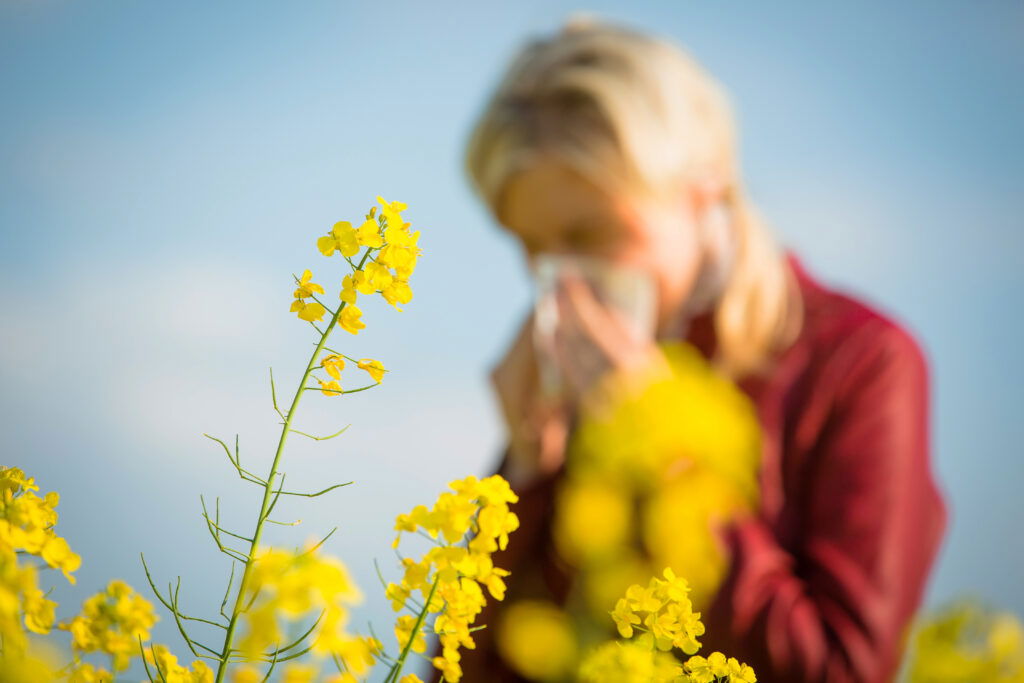Spring is here! Along with blossoming flowers and trees, spring can bring allergies. If you experience seasonal allergies, you are not alone. The Centers for Disease Control and Prevention (CDC) estimate that nearly 20 million American adults (8 percent) and 6 million children (7 percent) suffer from seasonal allergies. Symptoms of spring allergies often include sneezing, runny nose, nasal congestion, itchy or watery eyes, coughing, wheezing, difficulty breathing, and chest tightness.
Fortunately, there are ways to prevent and treat spring allergies. Here are a few tips you can use to minimize exposure to common spring allergens:
- Pay attention to pollen counts.
Check your local weather forecast or the National Allergy Bureau website to see pollen counts for each day. In addition, be aware that the pollen count is generally higher between 5-10 am and on warmer and windy days. Try to avoid spending time outside when the pollen counts are high.
- Keep your windows shut.
Warm spring days can tempt you to open your house windows or roll down the windows in your car. However, keeping your windows closed and using your air conditioner if needed can keep pollens out of your house or car.
- Vacuum and dust often.
Keep pollens in your house at bay by vacuuming and dusting frequently. In general, “pet-friendly” vacuums are best at sucking up pollen and other allergens like dander.
- Shower at night.
You might be surprised at how much pollen can collect on your hair and body during the day. Showering at night can remove those pollens before you go to bed. Also, be sure to wash your clothes as soon as possible after being outdoors.
- Avoid rubbing your eyes.
Pollens can collect on your hands, too. Don’t rub your eyes, as this could transfer allergens directly to your eyes.
- Use a HEPA filter.
HEPA filters are designed to remove airborne particles.
- Avoid your allergy triggers.
Allergy testing can identify your specific allergy triggers. Once you know what your triggers are, avoid them when possible. For example, if you are triggered by grasses, you might want to consider having someone else mow your grass or wearing a mask to protect yourself from allergens.
When you do experience spring allergies, there are treatments you can use. The following are common ways to treat seasonal allergies:
- Medications
Several forms of medication are available for spring allergies. These include oral antihistamines, nasal steroid sprays, nasal decongestants, and eye drops. Using these medications can reduce your symptoms.
- Immunotherapy
Immunotherapy is designed to control allergies for long-term benefits. Rather than simply suppressing the symptoms, immunotherapy works to desensitize your body to certain allergens, targeting the underlying immune response. Over time, this can help to lessen your allergic reaction. This may be a good choice if you cannot avoid your allergy triggers or if you have a poor response to allergy medications.
If you would like to learn more about how you can prevent and treat spring allergies, we welcome you to contact our allergy specialist today. We will be happy to provide you with high-quality, personalized care.




